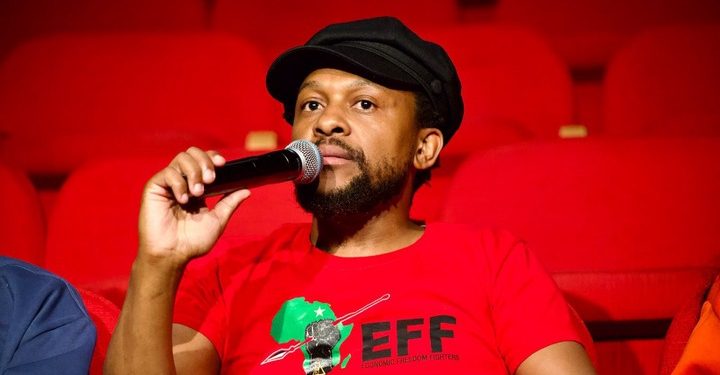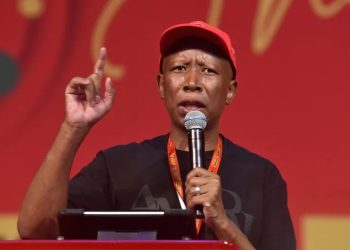In a renewed wave of public discourse, EFF Commissar Mbuyiseni Ndlozi’s early critique of the MK Party and former President Jacob Zuma has resurfaced, prompting fresh reflections among supporters. Known for his outspoken nature, Ndlozi took a bold stance at a time when many within the Economic Freedom Fighters (EFF) were advocating for unity with the MK Party. This position, perceived by some as divisive, now seems to resonate strongly with current political dynamics, leading many to believe that his early warnings were justified.
The EFF, recognized for its strong ideological statements and action-oriented leadership, has historically had a complex relationship with the MK Party. As the MK Party embodies a significant chapter in South Africa’s political history, there were factions within the EFF that saw value in aligning with the former ANC military wing. However, Ndlozi’s caution against such an alliance underscored the potential risks involved, especially in light of the longstanding tensions between the EFF and certain factions of the ANC.
Ndlozi’s critical voice, which often positioned him as a minority within his party, advocated for a careful approach to partnerships that could compromise the EFF’s ideological stance. Despite facing pushback from party members who favored collaboration, he remained steadfast in his belief that preserving the EFF’s independence was paramount.
Dr @MbuyiseniNdlozi. The only leader who warned all of us about MK and called out Jacob Zuma when many EFF leaders were calling for unity between EFF and the MK Party.
He was seen as divisive. But now he's been vindicated.
Let's appreciate him. Leave a heart for this guy. 🙏🙏 pic.twitter.com/7xnVF4XHJI
— Xabiso Mtwana (@MtwanaXabiso) October 29, 2024
Supporters of Ndlozi now argue that his early concerns regarding the MK Party have been vindicated, as the political landscape continues to shift. His foresight is increasingly viewed as a commitment to maintaining the EFF’s ideological purity, ensuring that any alliances do not dilute the party’s core principles. Observers note that the conflicts and tensions that Ndlozi warned about have indeed come to light, lending credence to his position.
The renewed focus on Ndlozi’s stance invites EFF supporters to reflect on the implications of political alliances in a complex landscape. His approach highlights the importance of prioritizing principle over popularity, encouraging a reevaluation of how parties navigate relationships in South Africa’s evolving political environment. As the EFF continues to define its path forward, Ndlozi’s insights may serve as a crucial touchstone for maintaining the party’s integrity in an ever-changing political climate.






















